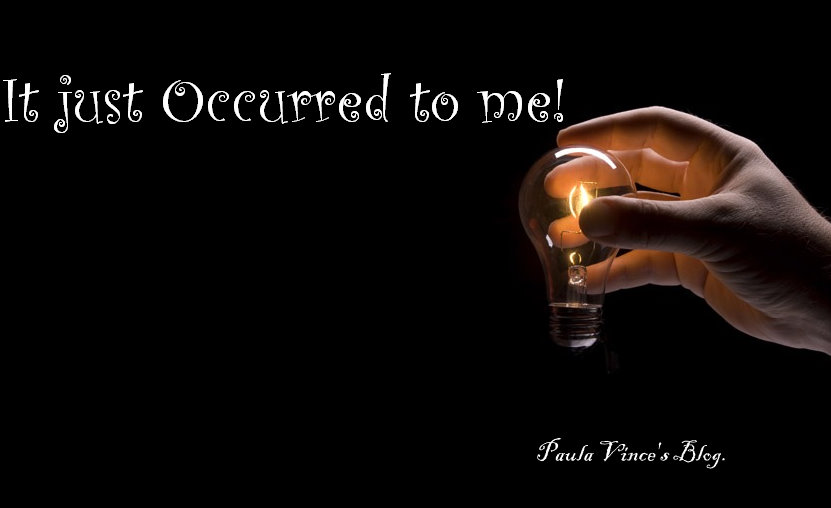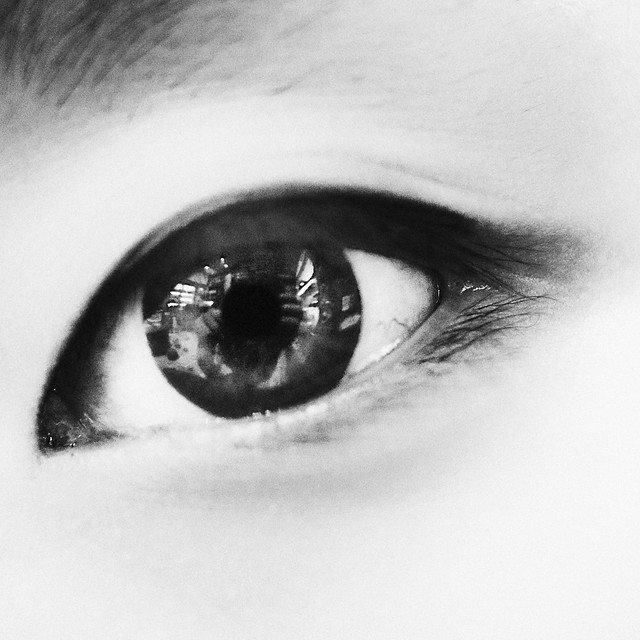Thursday, March 13, 2014
To make the most of our mobile windows
In the Message version of Matthew 6: 22-23, Jesus says, "Your eyes are windows into your body. If you open your eyes wide in wonder and belief, your body fills up with light. If you live squinty-eyed in greed and distrust, your body is a dank cellar. If you pull the blinds on your windows, what a dark life you will have."
I used to think this referred to people being able to stare into our souls through our eyes, as if they were windows, but I considered myself good at concealing my thoughts and feelings from others. Nobody uses my eyes as windows, thanks very much. The line which says, "Your eyes are windows into your body" might have been what confused me and got me thinking about Peeping Tom sort of behaviour from other people.
Perhaps if it read, "Your eyes are windows looking out on the world" I would have got the point quicker. It's all about us looking through those windows at what is outside, rather than other people peering in at us. Our eyes are the windows we're standing behind. We get to choose the things outside of those windows that we focus on. There's plenty of both good and bad to be seen, and the theme and flavour of our life will depend on what we choose to look at.
Recently I learned a bit more about the ancient eastern contrast between healthy eyes and unhealthy eyes. Apparently generous people who looked on others kindly, were said to have a 'good eye'. Those who were greedy, envious and covetous had an 'evil eye'. In this way, our eyes and our hearts are connected. When the eye focuses on something, it becomes the conduit which fills the heart with what it has focused on. So perhaps that is what Jesus meant, when he said that our eyes are windows into our body. We can take our choice and focus on either joy filled things which God values, self-pityingly on all the good things that belong to others and not us, or fearfully, on all the potential worst case scenarios which could knock us down.
Modern scientists have been saying the very same thing without even knowing there is a scriptural link. In 'The Mind that Changes Everything' Dr Ian Gawler explains that what we focus on significantly affects our outcome. If our focus is on something we fear or want to suppress, we give power to that very thing. (When we try hard not to think about a white horse, what immediately pops into our head?) What we turn our focus toward has far more importance than what we're attempting to turn away from, so he exhorts us to always focus on the positive, creative side of life, and when we realise we've deviated, to draw our attention back to where we want to be looking.
Today, I was mopping, sweeping and cleaning, annoyed at the kids for dumping towels and clothes on their floors instead of moving two steps to put them in the hamper. My mind was full of words like lazy bones, skunks and free-loaders. That got me thinking how I see red whenever they have the nerve to tell me I'm not doing the washing quick enough. And then, I thought how aggrieved they act when I express all this to them. It feels as if I can trace a thought from one brain synapse to another, and they grow into something steadily bigger as they move to the next one. It's enough to set up a bad mood for the rest of the day. Then I remembered what I was planning to blog about today. What's the point of focusing on all this, however true, when it makes me depressed and angry? Those are the moments to switch immediately, and choose to change my focus.
So often, I've seen different advice on what to do when we feel blue. I'm not talking about full-blown, clinical depression, but just the type of low moods we're all susceptible to at times. We could eat food that's said to contain happy-making properties, such as dark chocolate or bananas (or bananas dipped in dark chocolate). We could do some rigorous exercise or run to the shops to buy something brand new. Sometimes these physical changes don't even work very well. I often forget that the most simple thing, which happens inside my head and takes a fraction of a second, is simply to change my focus. When I do remember, I find it does work.
At least, if our eyes are windows, they are mobile ones. We're mistaken, if we think we're stuck looking at the same view all the time.
Tuesday, March 4, 2014
That narrow-minded attitudes are insidious
My son, Logan, is getting great at his favourite computer game, League of Legends. He sits up late to play and recently got himself high into the ranks of Platinum 1. They tell me that is nudging very close to a Diamond ranking, where many players actually have the potential to earn, or are already earning money.
Yet rarely does he get congratulated by extended family or friends, and I include myself too. We praise his sister, Emma, more for her various pursuits. Emma's ambition is to be a dessert chef, and she makes some luscious treats in the kitchen to take to events. She also loves her nature photography, and her art lessons. She puts a lot of heart and soul into all of this, and it's right that she should receive positive feedback. It's very easy to give, when her chosen hobbies are so easy to admire.
Yet a lot of work and passion goes into Logan's hobby too. To be as good at League of Legends as he is takes skill, coordination, reaction time, finely honed prediction skills and being able to liaise well with team members. It's taken a lot of work to rise in the ranks of the game as he has done, and very few have made it that far. His dad, Andrew, likes the game too, but has got no higher than the Bronze level, which is much lower. There are thousands of players across the world. It's equivalent, in its way, to people attempting to be masters of Chess.
So why aren't extended family and friends as impressed with his conquest as we are with what Emma does? It surely comes down to two things which are closely connected; cultural bias and stigma. Those of us who live in English speaking countries are often surprised to learn what huge followings these computer games have in countries such as South Korea. Over there, they actually televise matches of Starcraft and League of Legends on prime time TV, as if they are celebrated sports (which indeed, they are for them).
The experts of these games are household names. They earn huge pay packets and sometimes retire with physical injuries because of the repetitive strain of being so keyed-up on their game. And the boys tell me that family expectations are way different over there. An Aussie or American parent may say, 'It's very important that you raise your maths and science grades. We want you to be a doctor.' In South Korea, a bossy mother may be more likely to say, 'I want you glued to that computer chair practising your game. We want you to be a League of Legends star! Don't get up until you've reached Gold.'
This cake was made by Emma and Jarrad for Logan's 18th birthday last year. It's a map of the League of Legends terrain.
There is a natural respect for games such as LOL in that part of the world which we just don't have in Australia. Logan has been known not to even mention his achievements at family or church gatherings, because people give off vibes of disapproval. They may say, 'That's all very well, but what proper hobbies and work are you doing?' Members of the older generations often don't try to hide their distaste at all. 'All those computer games are making our young people go to the dogs! It breaks my heart to see it. Your sensibilities are being worn down with all that pointless killing stuff. It's turning our young people into savages. What's the world coming to?' It never seems to occur to them that they are actually being rude to rubbish a young man's hobby in front of him. He doesn't stand there, criticising their stamp collections, lawn bowls or whatever else.
I definitely agree that there is a problem if playing the computer games is all these young people do with their time. But the same goes for reading novels, which is my own chosen leisure time filler. Anything done excessively until it becomes an addiction is too much, but that doesn't make the hobby itself intrinsically bad. And many of these young gamers are students with other outlets. Also, I believe studies have shown that people who play computer games in their spare time have not had empathy erosion any more than anybody else.
My way of thinking has been challenged. I've been on the receiving end of narrow-minded judgments myself, by some Christians who have dismissed my fiction writing as pointless and frivolous. Remembering how it felt, it surprised me one day, to hear myself echo that very same attitude with regard to computer games, when I said something like, 'If only you'd devote that much time to your school studies, instead of this stuff.'
People who buy into the stigma are short-sighted and don't realise that their hearts don't need to be broken by changing times. I've visited the Christian Gamers Guild website, which contains many interesting essays designed to give concerned parents a broader outlook about the subject of computer games. And I'm glad to see novels such as "Motive Games" by L.D. Taylor being published. This is a Young Adult novel set in the up-and-coming world of the computer game design and manufacture industry. It's a clever murder mystery showing that intelligence and honour are tied up with the industry, instead of the opposite, as many people seem to automatically assume.
Basically, I've come around to see that refusal to change with the times is not gracious, and is also a bit silly. I don't want to be counted among those who are old-fashioned, blinkered in their outlook and behind the times. I don't want to spout my mouth off negatively about something of which I know very
little. I want to be open-hearted enough to congratulate my son for a well-earned achievement instead of rolling my eyes. We're hoping he'll get up into Diamond soon.
Subscribe to:
Posts (Atom)



